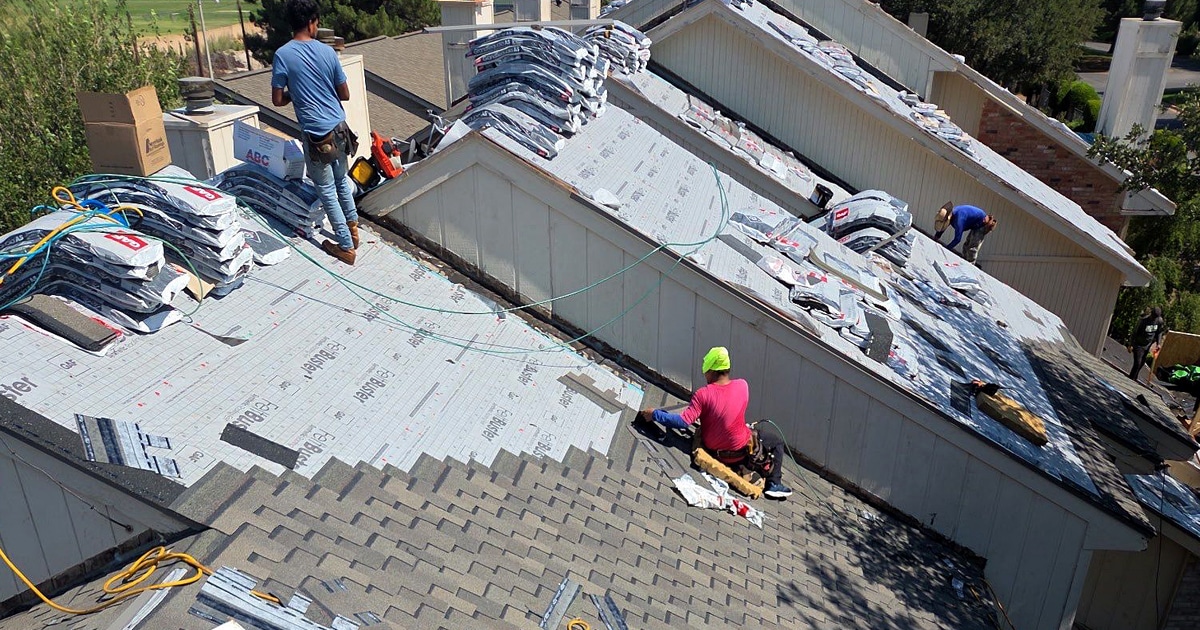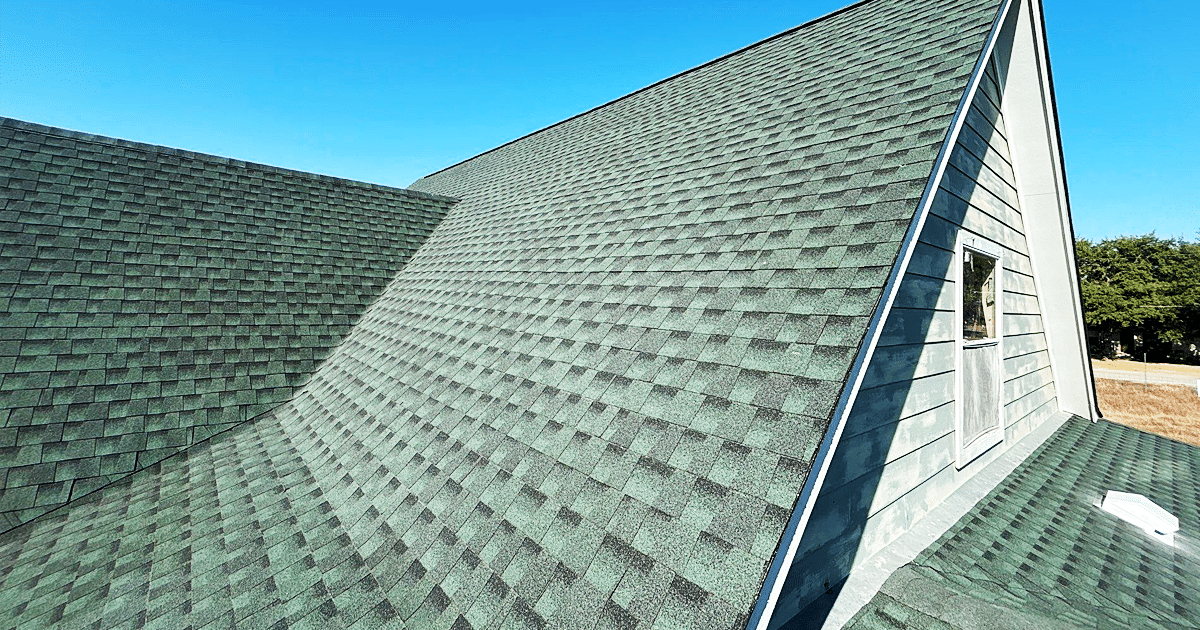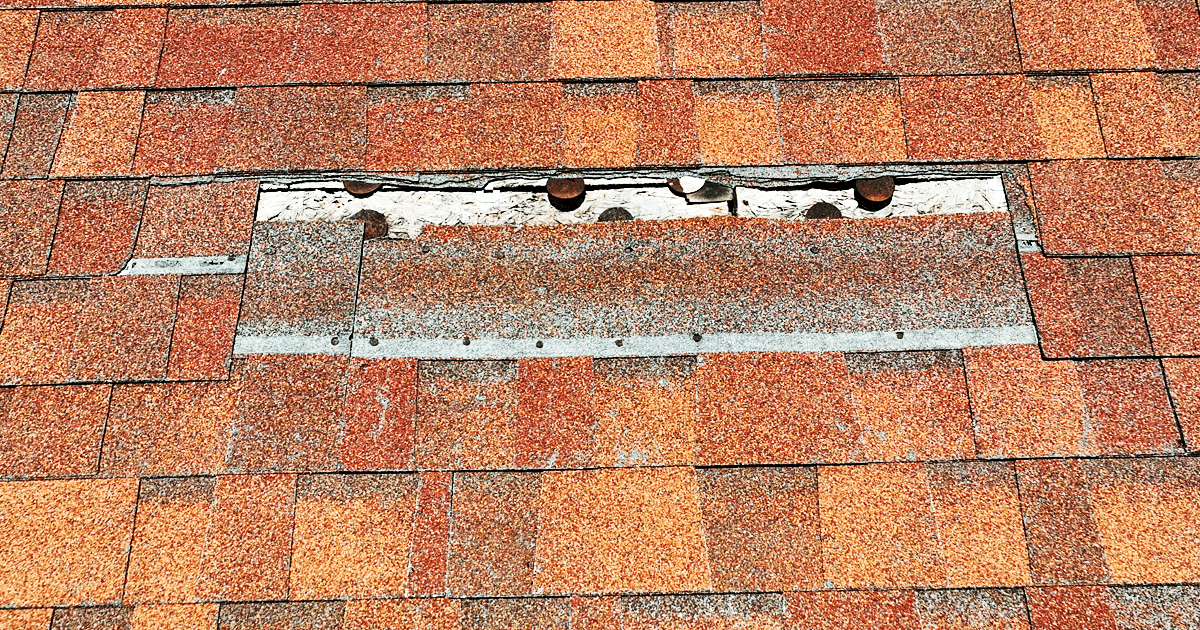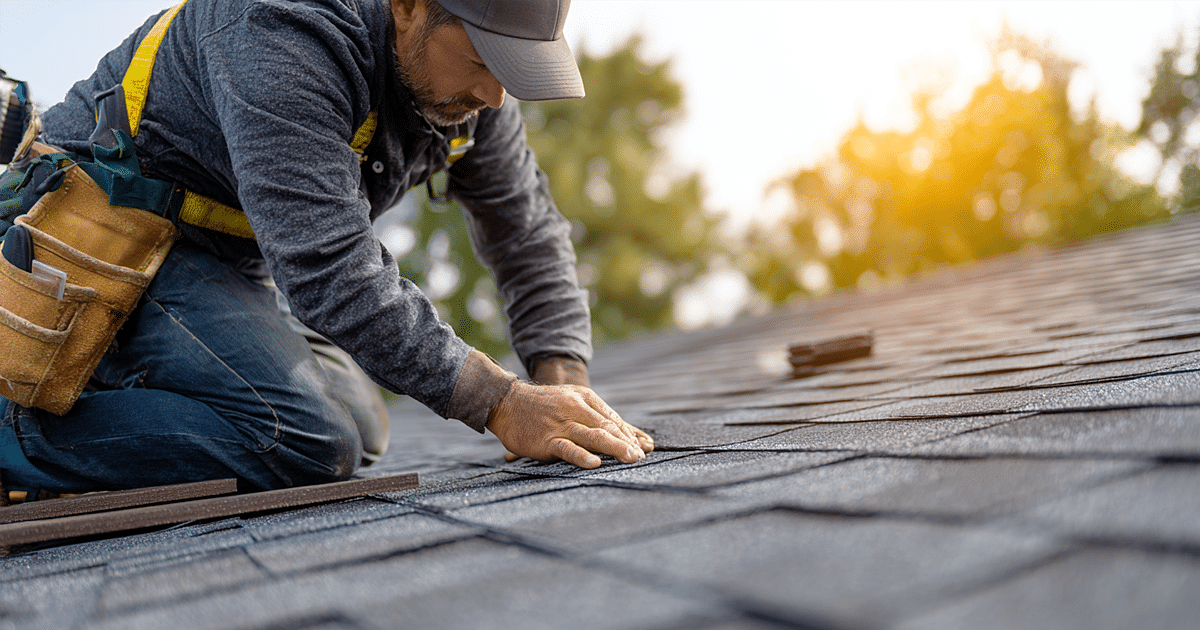When it comes to protecting your home, few things are as important as your roof warranty. But here’s what many homeowners don’t realize—your warranty is only as strong as the contractor who installs your roof. Manufacturer certifications aren’t just shiny badges; they prove that a roofer has met strict training, material, and installation standards set by the manufacturer. In short, the right certification can mean the difference between a warranty that truly protects your investment and one that leaves you uncovered when you need it most.
Key Takeaways
- Manufacturer certifications are often required to maintain full warranty coverage and access enhanced warranty programs that can extend protection from 20-25 years to 50 years or lifetime coverage
- Certified installations through programs like GAF MasterElite or Owens Corning Platinum Preferred can provide comprehensive system warranties covering both materials and workmanship under one policy
- Non-certified installations risk voiding warranties entirely, potentially leaving homeowners responsible for full replacement costs that can exceed $20,000 for an average roof
- Enhanced warranty programs offer transferable coverage that increases resale value and provides additional protections like algae resistance and upgraded wind coverage
- Proper certification ensures compliance with strict manufacturer installation standards, significantly reducing the likelihood of warranty claim denials
- Investing in certified installation and enhanced warranties can save homeowners significant costs and provide peace of mind in the long run
When investing in a new roof, the difference between hiring a certified contractor and choosing the lowest bidder could cost you tens of thousands of dollars. While the upfront savings might seem attractive, the long-term financial risks of non-certified installation can be devastating to your investment and peace of mind.

Understanding why manufacturer certifications matter for your warranty isn’t just about compliance—it’s about protecting one of your largest home investments. The roofing industry has evolved sophisticated certification programs that directly impact warranty coverage, creating a clear distinction between basic material protection and comprehensive system warranties.
What Are Manufacturer Certifications and How Do They Impact Warranties?
Manufacturer certifications represent formal approval programs where roofing contractors undergo specialized training, demonstrate technical competency, and commit to using proper installation techniques specified by the manufacturer. These certifications like GAF MasterElite, Owens Corning Platinum Preferred, and CertainTeed SELECT ShingleMaster directly determine the level of warranty protection available to homeowners.
The relationship between manufacturer certifications and warranties is fundamental to the roofing industry. While any contractor can install roofing materials, only certified contractors can access enhanced warranty programs that provide comprehensive protection. This distinction exists because manufacturers have documented that proper installation techniques, use of approved materials, and adherence to industry standards significantly reduce product failures and warranty claims. Certified contractors also ensure construction quality and compliance with building codes, which is essential for safety and warranty eligibility.
A standard manufacturer’s warranty typically covers defects in manufacturing for 20-25 years, but it specifically excludes coverage for issues arising from poor construction or installation. Enhanced warranties available through certified contractors expand this protection to include workmanship, installation errors, and system performance. This comprehensive approach means that certified installations provide coverage for both materials and labor under a single warranty program.
The certification process ensures that contractors understand manufacturer specifications for proper ventilation, fastening patterns, underlayment requirements, and accessory installation. Certified contractors must follow the manufacturer’s guidelines to ensure the validity of the manufacturer’s warranty. When these standards aren’t followed by non-certified installers, manufacturers can deny warranty claims based on improper installation, leaving homeowners without recourse for expensive repairs or premature roof replacement.
Enhanced Warranty Coverage Through Certified Installations
The financial benefits of enhanced warranty coverage through certified installations become apparent when comparing the different types of roof warranties available. There are different types of roof warranties, including manufacturer’s warranties, workmanship warranties, and extended warranty options. Standard manufacturer warranties typically provide 20-25 years of material coverage with significant limitations and exclusions. In contrast, enhanced warranties available through certified contractors can extend protection up to 50 years or even lifetime coverage for both materials and workmanship.
Enhanced warranties often include non-prorated coverage, meaning the manufacturer will pay full replacement costs throughout the warranty period rather than reducing coverage over time. This protection maintains excellent condition standards and eliminates unexpected costs that homeowners might face with prorated warranties that decrease in value annually.
Transferable warranty benefits represent another significant advantage of certified installations. Enhanced warranties can typically be transferred to new homeowners, adding substantial resale value to the property. Real estate professionals recognize that transferable warranties provide buyers with confidence and protection, often justifying higher sale prices and faster property sales.

Additional protections included in enhanced warranties often cover algae resistance, wind coverage upgrades beyond standard ratings, and extended labor coverage. An extended warranty can provide additional coverage beyond the standard terms. These features address common roofing system concerns that basic warranties exclude, providing comprehensive protection that maintains the roof’s condition and structural integrity throughout its lifespan. A workmanship warranty specifically covers installation errors made by the contractor, offering homeowners peace of mind regarding the quality of the installation.
The Financial Risk of Non-Certified Installation
The financial implications of choosing non-certified installation become stark when calculating potential cost savings versus replacement risks. While non-certified contractors might offer lower initial pricing, the loss of enhanced warranty protection can result in homeowners bearing full responsibility for premature roof failure, which averages $15,000-$25,000 for complete replacement. If the warranty is voided, homeowners may also be responsible for costly replacements out of pocket.
Common warranty claim denials due to improper installation by non-certified contractors include inadequate ventilation, incorrect fastening patterns, use of non-approved materials, and failure to follow manufacturer specifications. Warranties typically exclude coverage for normal wear and tear, so damages caused by aging or deterioration are not covered. Additionally, unauthorized repairs performed by non-approved contractors can void warranty coverage. These installation errors not only void warranties but often lead to accelerated wear, moisture damage, and structural integrity problems that require costly repairs.
The manufacturer certification process protects both homeowners and manufacturers by establishing quality standards that prevent substandard work. When contractors complete proper training and demonstrate competency, the likelihood of installation-related failures decreases dramatically, reducing warranty claims and ensuring reliable long-term performance.
Processing warranty claims requires manufacturers to verify certification status, installation compliance, and material specifications. Non-certified installations automatically disqualify homeowners from enhanced warranty programs, while improperly documented or non-compliant installations can result in claim denials even when materials fail within the warranty period.
Types of Enhanced Warranties Available with Certification
GAF System Plus Warranties
GAF’s MasterElite certification program provides access to the Golden Pledge Limited Warranty, offering 50 years of comprehensive coverage for both materials and labor. GAF’s commitment to excellence is reflected in their rigorous certification standards and comprehensive warranty programs. This industry-leading warranty program requires contractors to meet strict qualification standards, maintain high customer satisfaction ratings, and complete ongoing education requirements.
The Silver Pledge warranty provides 25 years of material coverage with 25 years of labor protection, while the Weather Stopper warranty offers enhanced wind resistance coverage up to 130 mph winds. Each warranty level corresponds to different certification requirements and installation standards, ensuring that enhanced protections align with contractor expertise and training.
Non-prorated coverage benefits mean that GAF will provide full replacement value throughout the warranty period, eliminating the declining protection that characterizes many standard warranties. Transferability features allow new homeowners to assume warranty benefits, maintaining protection and adding resale value to the property.
Owens Corning Platinum Protection
The Platinum Protection Warranty through Owens Corning’s Platinum Preferred certification provides lifetime materials coverage combined with 50 years of labor protection. This comprehensive program requires contractors to complete TruDefinition Duration and TruPro certifications while demonstrating expertise in SureNail technology installation.
SureNail technology requirements ensure proper fastening and sealing that prevents wind uplift and water infiltration. Certified contractors must demonstrate proficiency in these installation techniques to qualify for enhanced warranty coverage that exceeds industry standards for wind resistance and weather protection.
The certification program includes regular audits and performance monitoring to maintain high standards throughout the contractor network. This ongoing quality assurance helps ensure that warranty claims are processed efficiently and that installation standards remain consistent across all certified installations.

CertainTeed SureStart Programs
CertainTeed’s SureStart PLUS warranty extends coverage up to 50 years for installations completed by credentialed contractors within their certification program. The tiered certification system includes 3-Star, 4-Star, and 5-Star protection levels, each providing different coverage benefits based on contractor qualifications and installation standards.
XT25 shingle warranty options range from 10 to 25 years based on certification level, with higher-certified contractors providing access to extended coverage terms. This graduated approach ensures that warranty benefits align with contractor expertise while providing clear incentives for maintaining certification standards.
The SureStart program emphasizes proper installation documentation and material compliance, requiring certified contractors to verify that all system components meet manufacturer specifications. This attention to detail helps prevent warranty claim denials and ensures that installations maintain coverage throughout the warranty period.
How to Ensure Your Installation Qualifies for Full Warranty Coverage
Verifying contractor certification status requires checking directly with manufacturer databases rather than relying solely on contractor claims. GAF, Owens Corning, and CertainTeed maintain online contractor locators that provide current certification status, allowing homeowners to verify credentials before signing contracts.
The importance of using manufacturer-specified materials and accessories cannot be overstated for warranty compliance. Certified contractors ensure compliance with local building codes, which is essential for safety, structural integrity, and energy efficiency. Enhanced warranties typically require that all system components—from underlayment to flashing to ventilation—come from the same manufacturer and meet specific performance standards. Mixing materials from different manufacturers can void warranty coverage entirely.
Certified contractors are trained to work with different roofing systems, giving them the expertise to evaluate roof materials, installation quality, and potential damages. This expertise provides customers with added assurance and support throughout the warranty process.
Documentation requirements for warranty registration include proof of certified installation, material receipts, and compliance with manufacturer specifications. Certified contractors typically handle warranty registration as part of their service, ensuring that all deadlines are met and documentation is properly submitted to maintain coverage.
Proper attic ventilation represents a critical requirement that manufacturers verify when processing warranty claims. Certified contractors understand ventilation calculations and installation requirements that maintain warranty validity, while non-certified installers often overlook these specifications, resulting in coverage denial.
Roof Certification Process: Steps to Getting Certified
The roof certification process is an essential step in ensuring your roofing system is safe, reliable, and compliant with industry standards. It begins with a thorough inspection by a certified contractor, who will carefully assess the roof’s condition, looking for any signs of damage, wear, or potential problems that could compromise the system. This inspection covers every aspect of the roof installation, from the quality of materials used to the integrity of safety systems and adherence to the manufacturer’s guidelines.
During the inspection, the certified roofing contractor will verify that all components are installed correctly and that the roof meets or exceeds industry standards. If any issues are found, the contractor will recommend necessary repairs to bring the roof up to certification requirements. Once the roof is confirmed to be in excellent condition, the contractor will issue a roof certification, providing homeowners, buyers, and insurance companies with documented assurance of the roof’s quality and safety.
Regular audits and inspections are essential to maintaining this certification over time. By scheduling periodic evaluations with a certified contractor, homeowners can rest assured knowing their roof remains protected, potential problems are addressed early, and the roofing system continues to provide peace of mind. Whether you’re a homeowner looking to protect your investment or a buyer seeking confidence in a new property, the roof certification process is a vital tool for verifying good condition and ensuring long-term safety and reliability.
Reading and Understanding Your Roof Warranty
Understanding your roof warranty is crucial for protecting your investment and making informed decisions about your roofing system. Roof warranties come in several types, including manufacturer warranties, workmanship warranties, and extended warranties—each offering different levels of protection. Manufacturer warranties typically cover material defects, ensuring that the roofing materials themselves are free from flaws. Workmanship warranties, on the other hand, protect you against installation errors made by the contractor. Extended warranties can provide additional coverage, sometimes including both materials and labor, and may even be transferable to new homeowners, boosting your property’s resale value.
When reviewing your roof warranty, pay close attention to the coverage period, what is and isn’t covered, and any requirements for ongoing maintenance or inspections. It’s essential to know the steps for filing a claim, what documentation you’ll need, and how to keep your warranty valid—such as scheduling regular inspections and addressing repairs promptly. A certified contractor can be an invaluable resource, helping you interpret warranty terms, maintain compliance, and avoid actions that could void warranties.
By taking the time to read and understand your roof warranty, you ensure that your roofing system is protected against unexpected costs and that you’re prepared to take full advantage of your coverage. This proactive approach, supported by a certified contractor, helps keep your roof in excellent condition and your investment secure for years to come.
Specific installation errors that void warranties when performed by non-certified contractors include inadequate fastener penetration, improper starter strip installation, insufficient ventilation ratios, and failure to follow manufacturer nail patterns. These technical requirements demand specialized training that certification programs provide to qualified contractors.
Mixing materials from different manufacturers affects warranty coverage because enhanced warranties typically require complete system installation using components designed to work together. Using generic or alternative brand accessories with premium shingles can void comprehensive warranty coverage, reducing protection to basic material-only terms.
Maintenance requirements that certified contractors explain include annual inspections, debris removal, and prompt repair of minor damage to prevent warranty voidance. Regular maintenance is essential for keeping roofs in good condition and maintaining warranty coverage. Non-certified installers may not communicate these requirements, leaving homeowners unaware of actions needed to maintain coverage.
Documentation and registration deadlines require prompt submission of warranty paperwork, often within 60-90 days of installation completion. Certified contractors ensure these deadlines are met as part of their professional service, while homeowners working with non-certified installers may miss critical registration periods that void coverage.

The investment protection provided by manufacturer certifications extends far beyond initial installation quality. When you choose a certified contractor, you’re securing comprehensive warranty coverage that protects your investment for decades while maintaining your home’s resale value and structural integrity.
Understanding why manufacturer certifications matter for your warranty empowers you to make informed decisions that protect your investment and provide peace of mind. The enhanced coverage, transferable benefits, and comprehensive protection available through certified installations represent significant value that far exceeds any initial cost differences.
Rest assured knowing that certified installations provide the highest level of protection available in the roofing industry. By choosing certified contractors and understanding warranty requirements, homeowners can protect their investment while ensuring their roof maintains excellent condition throughout its designed lifespan.
Claiming a Roof Warranty: What Homeowners Need to Know
If you ever need to claim your roof warranty, knowing the right steps can make the process smooth and stress-free. The first thing to do when you notice an issue—such as a leak, damage, or signs of material failure—is to contact your certified contractor or the manufacturer directly. They will guide you through the claims process, which typically involves submitting proof of your roof installation, maintenance records, inspection reports, and detailed documentation of the problem, including photos and descriptions.
Keeping thorough records of all maintenance, repairs, and inspections is essential, as this documentation is often required to support your claim and maintain warranty coverage. Acting quickly is also important; delays in reporting issues can lead to denied claims or reduced coverage, leaving you responsible for unexpected costs.
A certified contractor can help you navigate the warranty claim process, ensuring that all requirements are met and that your roofing system remains protected. Regular maintenance and timely inspections not only help prevent problems but also demonstrate your commitment to maintaining your roof in good condition—an important factor in keeping your warranty intact. By understanding the claims process and working closely with a certified contractor, you can rest assured knowing your investment is protected, your roof’s longevity is maximized, and you have the peace of mind that comes with comprehensive warranty coverage.
FAQ
Can I upgrade to an enhanced warranty after installation if my contractor wasn’t certified initially?
Unfortunately, enhanced warranty programs require certification at the time of installation and cannot be upgraded retroactively. The certification process ensures proper installation techniques from the beginning, and manufacturers cannot verify compliance after completion. Homeowners with non-certified installations are limited to basic material warranties that exclude workmanship and installation coverage.
How can I verify my contractor’s current certification status with the manufacturer?
Each major manufacturer maintains online contractor locator databases where you can verify current certification status by entering the contractor’s business name or license number. GAF’s contractor locator, Owens Corning’s network directory, and CertainTeed’s contractor finder provide real-time certification verification. Always check directly with the manufacturer rather than relying on contractor-provided certificates, as certifications can expire or be revoked.
What happens to my warranty if my certified contractor goes out of business?
Enhanced warranties remain valid even if the installing contractor ceases operations, as the warranty agreement is between the homeowner and the manufacturer. However, labor coverage portions of the warranty may be affected since the original contractor is no longer available to perform repairs. Most manufacturers work with homeowners to arrange service through other certified contractors in their network while honoring the original warranty terms.
Do manufacturer certifications affect insurance claims for storm damage?
While manufacturer certifications don’t directly impact insurance coverage, they can influence claim processing and repair quality. Insurance adjusters may recommend certified contractors for repairs to ensure proper restoration, and enhanced warranties can provide additional protection if storm damage reveals installation defects not covered by insurance. Certified contractors also understand proper documentation requirements for both insurance and warranty claims.
Are there different certification levels within the same manufacturer program that affect warranty coverage?
Yes, most manufacturers offer tiered certification programs with different warranty benefits. For example, GAF has Master Elite, Certified, and Authorized certification levels, each providing different warranty options. Higher certification levels typically require additional training, higher customer satisfaction ratings, and greater experience, resulting in access to premium warranty programs with longer coverage periods and enhanced protections.
Contents
- What Are Manufacturer Certifications and How Do They Impact Warranties?
- Enhanced Warranty Coverage Through Certified Installations
- The Financial Risk of Non-Certified Installation
- Types of Enhanced Warranties Available with Certification
- How to Ensure Your Installation Qualifies for Full Warranty Coverage
- Roof Certification Process: Steps to Getting Certified
- Reading and Understanding Your Roof Warranty
- Common Warranty Voidance Issues Related to Certification
- Claiming a Roof Warranty: What Homeowners Need to Know
- FAQ



